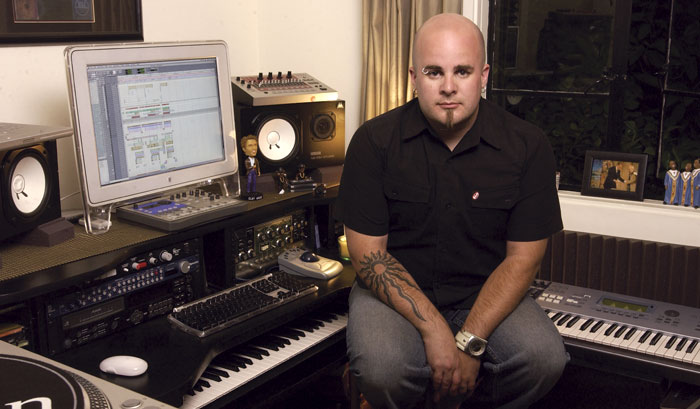


The American Idol series has rocketed a number of artists to sudden fame. And a surprising number of them rely on the hands and ears of one man: Jason Halbert
Halbert has just completed a Clay Aiken/Kelly Clarkson co-headlining tour, on which he served as keyboardist and musical director for both artists. Before that he worked with Idol favorites Justin Guarini and Ruben Studdard.
"There isn't generally a lot of overlap between the artists' bands," says Halbert, speaking a day after the airing of the show's 2004 season finale. "I just happen to have been a part of a lot of them."
Everything comes together unbelievably fast. Last year, we had auditions for Kelly Clarkson's band two days before we played Leno.
Halbert was tapped for the gig by bassist/Idols judge Randy Jackson, whom Jason met while touring with former Backstreet Boy Nick Carter. The Guarini gig came first, followed by stints with the other singers.
By the time an American Idol artist starts putting together a full-length show, they've acquired at least some touring experience, thanks to the show's practice of sending the top 12 finalists on an extended tour. "That experience gives the artists their 'legs' onstage," says Jason. "By the time I start working with them, they're accustomed to performing in front of audiences every night. They've pretty much finished their records, and they've probably had a couple of singles released."
At that point, Jason receives copies of the studio tracks from the producers and figures out how to reproduce them with the live group. "The label is trying to sell the record," he says, "so we want the live version to sound as close as possible to the record, though hopefully taking it to the next level. As musical director, I interpret that along with the artist, and then I get the band up to speed."
One crucial decision: deciding which parts are to be played by the live musicians, and which will be rendered by the automated backing tracks. "For example," notes Halbert, "on Kelly Clarkson's 'Miss Independent,' the studio kick and snare sounds are a big part of the song's signature, so I put those particular sounds on the backing track and had the drummer just play along with them. On the other hand, Clay's record tends to have more organic-sounding drums, so we don't put many drum parts onto the sequences - maybe just a little tambourine or percussion."
Perhaps Halbert's biggest challenge is coping with brutal production schedules. "That's one thing about working with artists who have not come up through the ranks in the conventional way," he observes. "Everything comes together unbelievably fast. Last year, we had auditions for Kelly Clarkson's band two days before we played Leno. And sometimes I don't receive the material I need to fully program the show until very late. On this last tour, I didn't have a couple of songs until the day before the dress rehearsals, because they were still working on Clay's record in the studio."
How does Jason handle the stress? "Well," he answers, "I worry about the things I can actually do something about, and I make sure the band is as prepared as it can be, whether the backing tracks are finished or not. As long as we prepare ahead of time, we're good."
Halbert credits his trio of Yamaha Motif synthesizers with relieving at least some of his stress: "Because of all the time crunches, I don't have time to program new sounds for the live show. The great thing about working with the Yamaha Motif is that it's the same keyboard a lot of producers are using in the studio right now. On Kelly's record, for example, there were tracks from six different producers, and almost all of them used stock Motif sounds, especially the acoustic piano. So when I get the tracks, it's great if I can solo something and say, 'Aha - the Motif!' instead of having to create something from scratch. And the Motif's ease of setup is a real asset. I received a couple of Motifs two days before the tour started, and I had a three-hour window to program everything - and I did."
Halbert has a few words of advice for players auditioning for those lucrative, but competitive, pop gigs: "Be on time. Be prepared. Dress appropriately for the job. Learn the parts as close to the record as possible. And remember that simplicity is important. A lot of players are trying to prove something at auditions, so they overplay. But a lot of these pop gigs are about playing less and leaving space for other people."
























